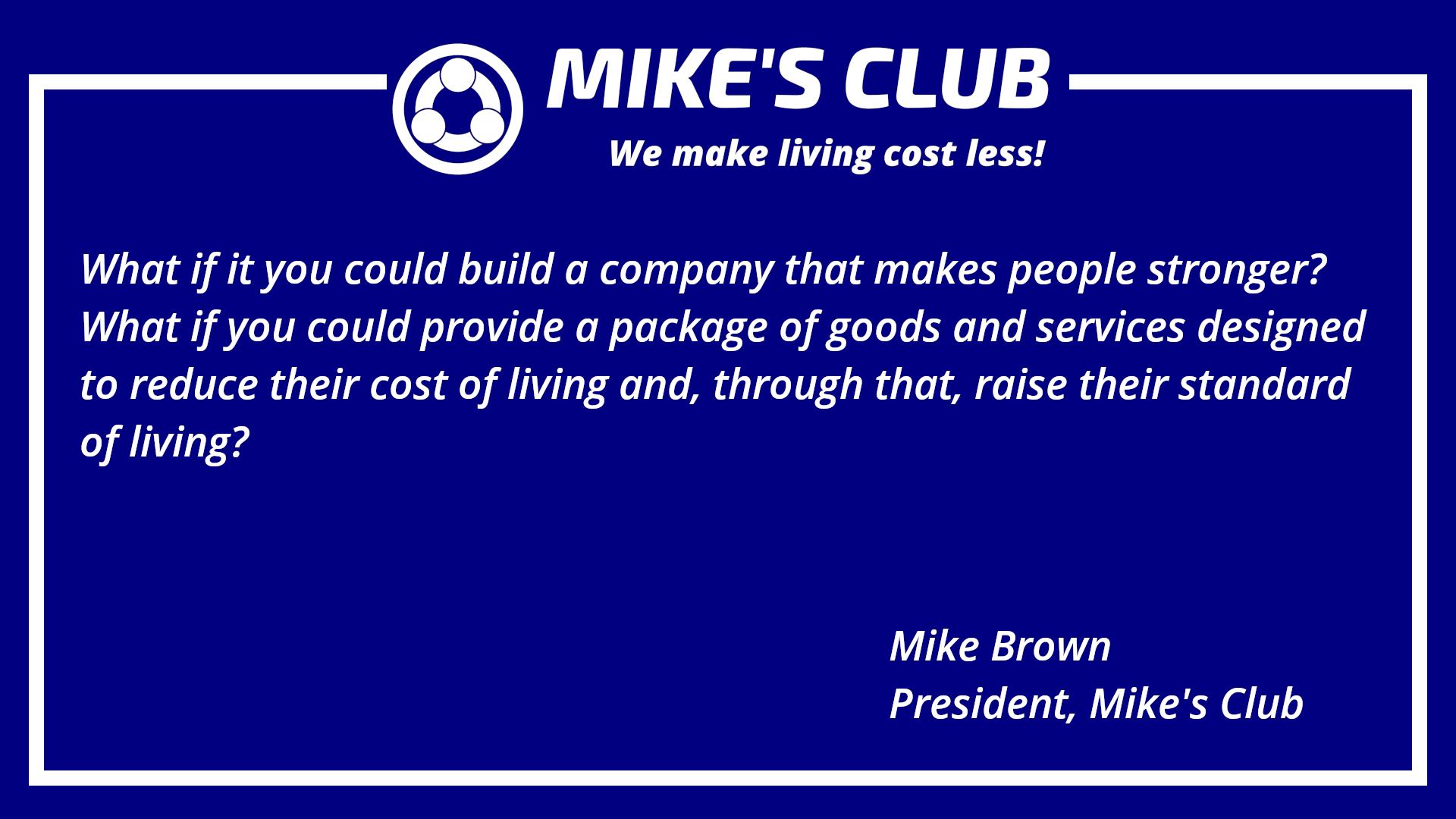We recently connected with Mike Brown and have shared our conversation below.
Hi Mike, thanks for joining us today. What’s the backstory behind how you came up with the idea for your business?
I’ve spent most of my life overseas, in some of the poorest places in the world, and I’ve watched people struggle to survive with very little help. I know people who live in houses made entirely of cardboard and scraps of wood and metal they’ve found along the side of the road. I know people who have a single light bulb in their homes, and people who make their living by sorting through garbage in a massive, smoky city dump.
Because of that, I’ve always thought there should be a business whose primary focus was to help people survive. A business that made money, but whose goal was more than just accumulating a hoard of gold. A business whose end product was the customers themselves, and whose success was measured by how much it improved the lives of those customers. That’s the Mike’s Club origin story.
One of my favorite quotes on business comes from Simon Sinek, an author and speaker who focuses on business leadership. He said “People don’t buy what you do, they buy why you do it”. That’s been one of my guiding principles since we started this company. For many big companies, the “why” is nothing more than money. They set prices based on how much people are willing to pay, rather than how much they are able to pay. Those who can’t afford to buy a product are just out of luck, because there’s always another customer who can. At Mike’s Club, we don’t think that way.
Yes, we have to make enough money to pay our expenses, and we have to make enough extra so that we can grow and improve, but we’re not trying to fill a dungeon full of gold and treasure. I can’t tell you how many times we’ve accepted the amount a customer could comfortably pay, rather than turning them away because they couldn’t afford our price. Sometimes that amount is a little less than our regular price, and sometimes it’s just good old fashioned free! “A fair deal for both parties” can sometimes mean no charge at all.
In the end, it balances out. Many customers, the ones who know us well, often give us extra, or tell us to keep the change, because they know how we operate. And, on quite a few occasions, we’ve had a homeless person walk in and just hand us a $10 bill, because we’ve helped them out in the past. I don’t think that happens in any other store in the country!
We built a company designed to make people stronger. We are the helping hand you can use to lift yourselves up, to make yourselves more secure. We don’t have all the answers yet, but we’re working on it. One day there will be a Mike’s Club store in every city in the country. And when that day comes, you’ll see some pretty powerful things happening!

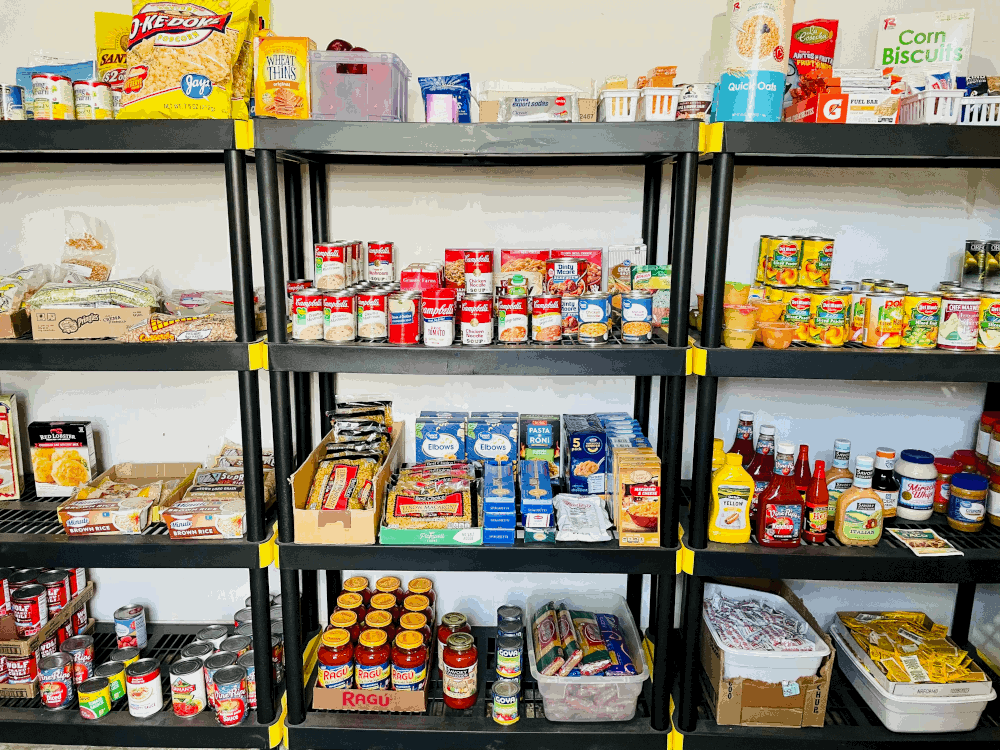
As always, we appreciate you sharing your insights and we’ve got a few more questions for you, but before we get to all of that can you take a minute to introduce yourself and give our readers some of your back background and context?
I am a retired member of the US military. During my many years overseas, I was always struck by the struggles I saw people going through, just trying to survive. I had always planned on launching Mike’s Club overseas, but things changed and I returned to the US in 2014. Once back here, in my small hometown of McAlester Oklahoma, I realized people were struggling just as much here as in other countries. And, even though there are many services available, the deck is stacked against those struggling people. The world isn’t designed to help people survive. It’s designed to consume them, so that someone above them can grow even stronger.
I’ve also always seen that there is a disconnect between the haves and the have nots. People who live comfortably often buy things and then replace them simply because they are bored with the old one. Tired of your couch? Just order a new one and let the delivery guys haul off the old one, even though it has plenty of life left in it. Mothers buy baby clothes more often than there are days in the week, and then just bag up and donate the old ones. In massive amounts.
So I started Mike’s Club, a thrift store that accepts second hand donated items, including clothing, furniture, household necessities, decor, and more. We sell it all at incredibly low prices (most clothing is only 50¢ apiece), and we give away almost as much as we sell. If someone walks into my store and says “I can’t afford to clothe my family”, we give them what they need at no cost.
Along with clothing, we can provide bedding and blankets, pots and pans, health and hygiene items (including wheelchairs, walkers, crutches, etc), and sometimes even furniture and larger appliances. As I said, we price everything to sell, but no one in need is ever turned away.
Our community knows what we do, and they choose to donate their unwanted items to us rather than to other donation based organizations. We work hard to make sure everyone in our town knows we are just a focal point for their generosity. When one of our customers has an unusual need, like a pair of size 16 shoes, or a hula skirt for a school play, I put the word out and our community answers faster than I can finish writing the post.
We also have a small food pantry in our store, which we call our Little Free Grocery, stocked with items donated by the community. We carry food, hygiene items, baby food and formula, diapers (for both babies and adults), and even socks, bras, and underwear. Those things are always available to anyone for free. Our pantry serves not only the homeless, but anyone who is struggling.
What sets us apart from others? We are a business whose purpose is service. We do have bills to pay, but we are not in business to get rich. We are in business to make people stronger.
What am I most proud of? I am proud of the customers who come in, after being absent for quite some time, and tell me how they’ve lifted themselves up to become self sufficient after initially having to rely on us for food, a warm coat, and encouragement. I have many stories to tell like that.
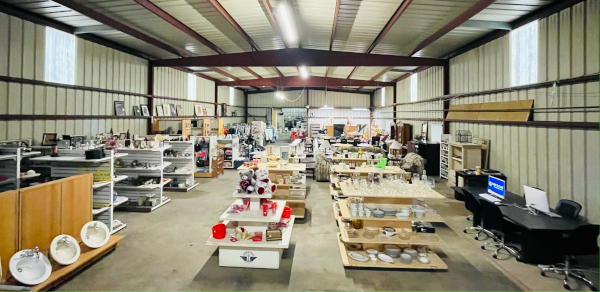
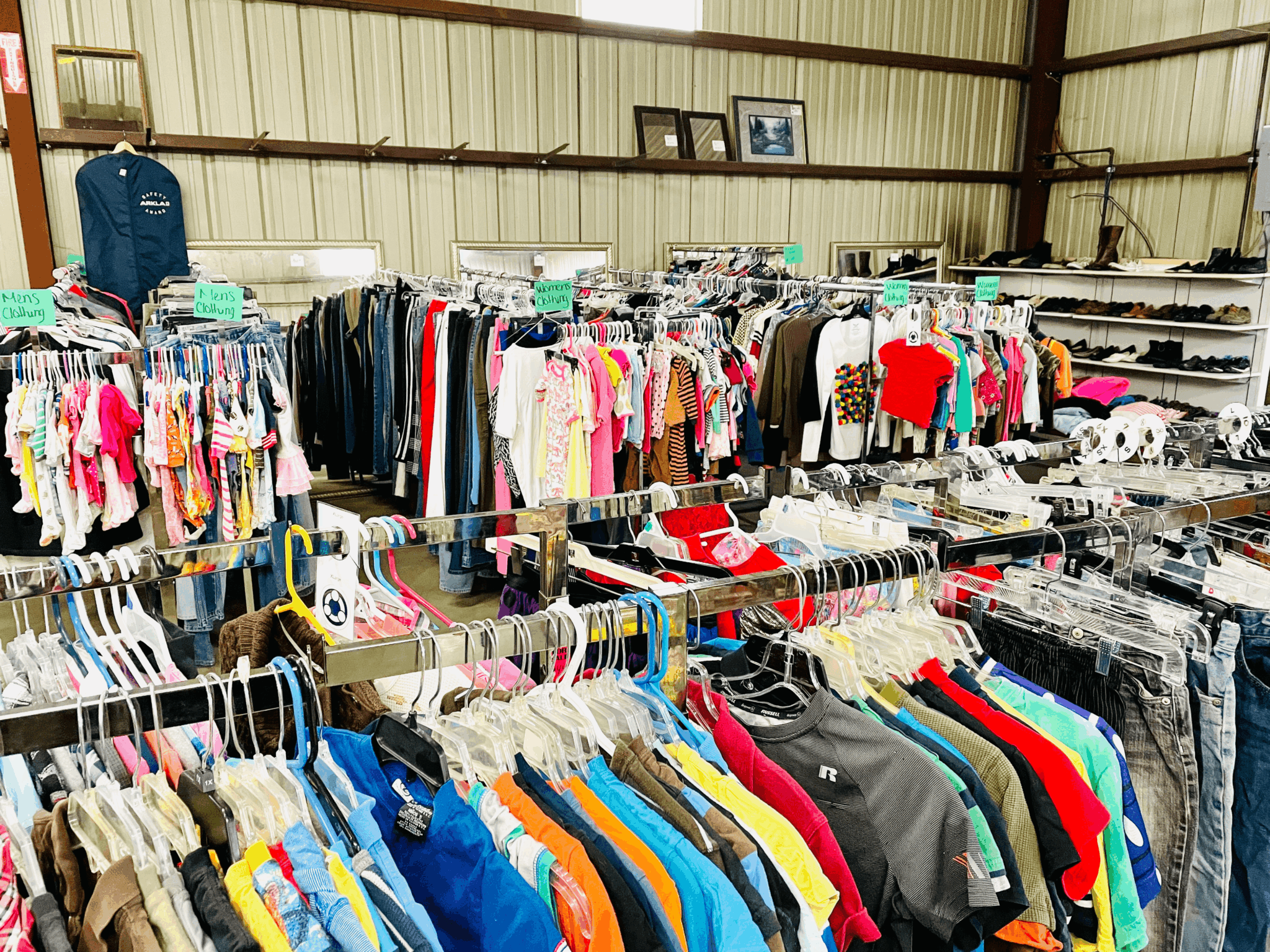
How about pivoting – can you share the story of a time you’ve had to pivot?
Mike’s Club is in its 7th year, and we’ve pivoted several times during our journey.
First, the formative experience in my life has been my 20 year military career. Nothing, no seminars, no training, no books, no YouTube videos, can adequately prepare you for the transition from military to civilian life. My career was all about service. Money was never a consideration. I was paid a flat salary, and I was expected to be available around the clock if necessary. If I needed support or service from someone else, I picked up the phone and it was answered by a guy whose sole purpose was to provide that service on demand. There was no haggling about cost, “what can you do for me”, or anything else. We were all there to get the mission done. Nothing else mattered. The civilian world is very different.
When I got my first job after my retirement (I was 40 years old then), we had a great interview about my skills and abilities, and about what I could bring to the table. All good. But when they asked me how much I thought I should be paid, I was floored. I had never, in my entire life, been asked to put a monetary value on my service. That may seem naive, but learning that that’s how the business world works was a huge pivot for me personally. I still struggle with that concept, and it impacts the way I look at business even now.
When I started Mike’s Club, 7 years ago, I started it as a consignment store. People would bring items to us, and we would sell the items for them, keeping a small cut for ourselves. We were a very popular store, but it wasn’t sustainable. In order to keep the merchandise as affordable as I wanted, and still pay the consigners, there just wasn’t enough left over to pay our operating costs. We were hemorrhaging, and I was pumping my own money into the business every month. And then COVID hit.
COVID shut us down completely for more than a month. And even after we reopened, it took a very long time for sales to pick up again. In the end, we couldn’t keep up with the rent and we had to move to a new building. We called every consigner and asked them to come pick up their merchandise, but quite a few told us to just keep it. So we moved into our new building with trailer loads of (now) our own merchandise. So my team and I had a long hard discussion. We decided to pivot from being a consignment store to being a donation based thrift store. Taking donations meant that we didn’t have to pay any consigners, and we could set our own prices. It turned out to be the best decision we’ve ever made.
Once we started accepting donated items, while at the same time pushing the idea that we give necessities for free to anyone who couldn’t afford to pay, things took off. The volume of donations is so overwhelming now, that we could literally burn the store (12,000 square feet) to the ground and in 2 months we’d be right back to overflowing. People donate to us because they like what we do. They donate to us because, at heart, most people want to be part of the solution.
Now, there’s one more small pivot I’d like to mention. Our Little Free Grocery wasn’t always free. Originally, I would make regular trips to Costco in Tulsa, buy groceries in bulk, and then we would sell the items at our break-even cost. This essentially gave our customers access to the savings of buying at scale. But when COVID hit, I couldn’t keep the grocery stocked, so we decided to close that part of the business. We announced that our remaining stock of groceries would be free, and there would be no more. But when we did that, people started donating groceries to us, so that we could continue giving food for free! That unexpected pivot led to the Little Free Grocery we operate today!
The lesson here is that pivoting is sometimes the best thing you can do. There is a difference between being persistent and being foolish. If something isn’t working, don’t keep beating a dead horse. Make a decision and change. Mike’s Club ia nothing like what I originally envisioned. It’s better.
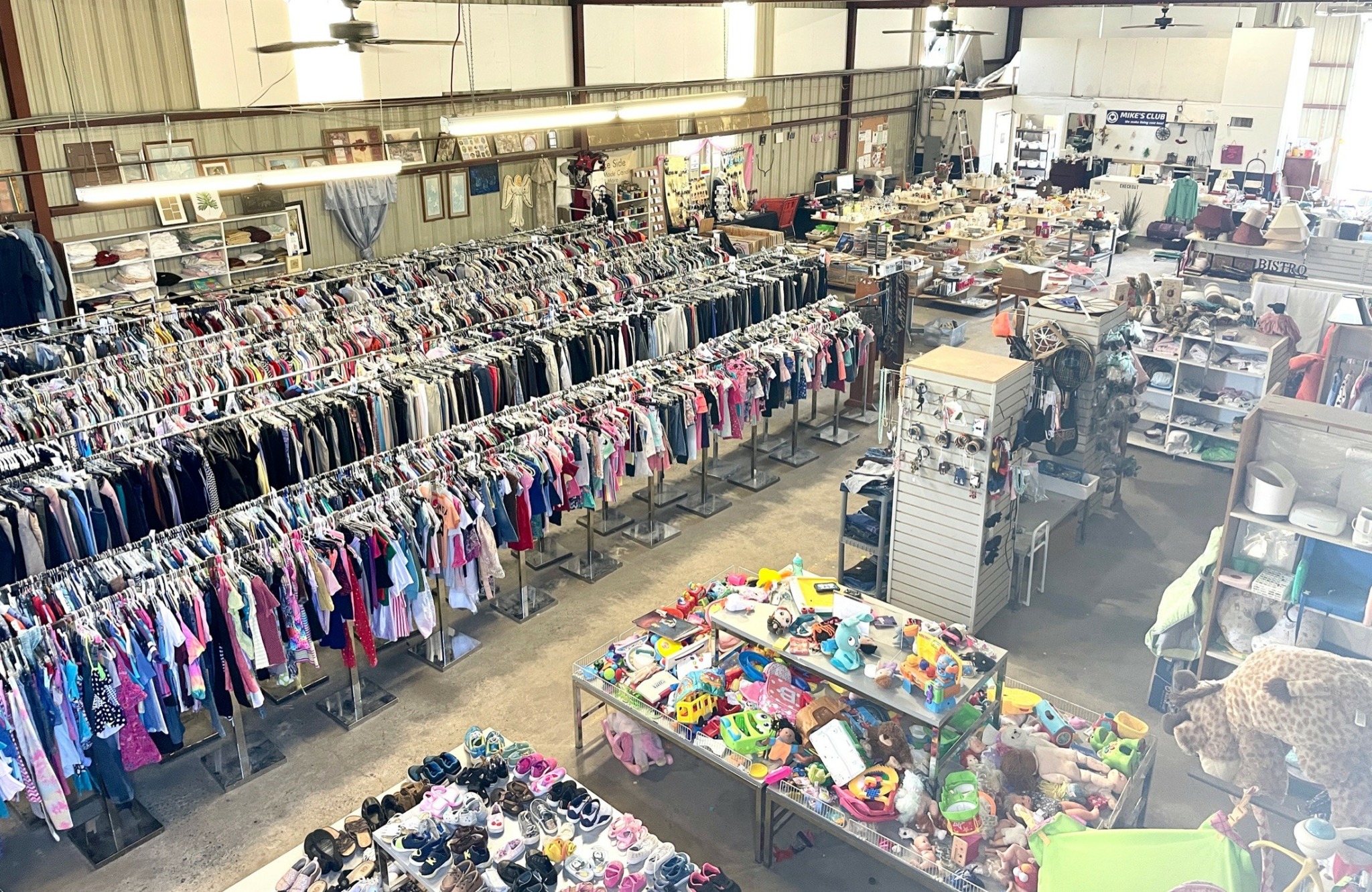
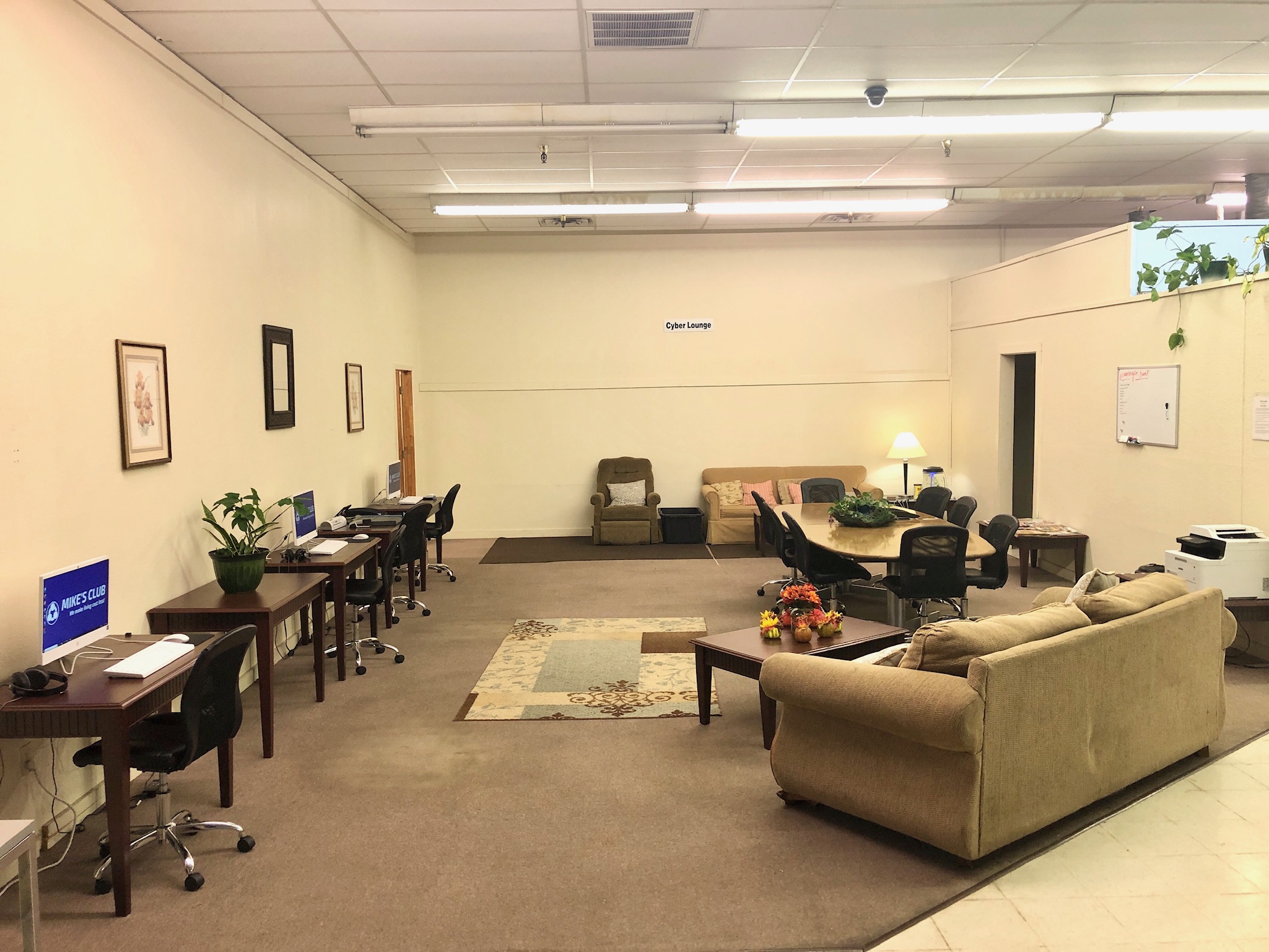
What do you think helped you build your reputation within your market?
Mike’s Club enjoys a great reputation in our area. The store carries my own name, and I spend a lot of time interacting with customers, including at the checkout. People know me, and greet me, even outside the store. In some ways we’re like the old time country store. I get updates about people’s health, or about their personal struggles. I care, and people know I care.
I write a lot on Facebook, which is my primary social media presence. In my writing, I tell stories, about the people in our community and the difficulties they have overcome. I tell stories about Kayla, who walked into our store in the snow, without warm clothes or food to eat. I tell how we gave her food, clothes, and a coat, and how I talked to her for quite a long time. I tell about how she came back in after being gone for almost a year and reported that she got herself into rehab and is now clean, employed, and living in her own apartment. And I tell about how, after I recently asked her “how are you now?” She replied “I love my life!”
In short, my reputation is built on the fact that I care, and that we are an honest business. We treat everyone with respect and dignity, and we go above and beyond to help lift people up. It’s about more than just selling things at low prices. It’s about caring.
Finally, in all my writing, I make sure to always thank the community for their support. I make sure to credit the people in our community for what we do. We couldn’t do it without them.
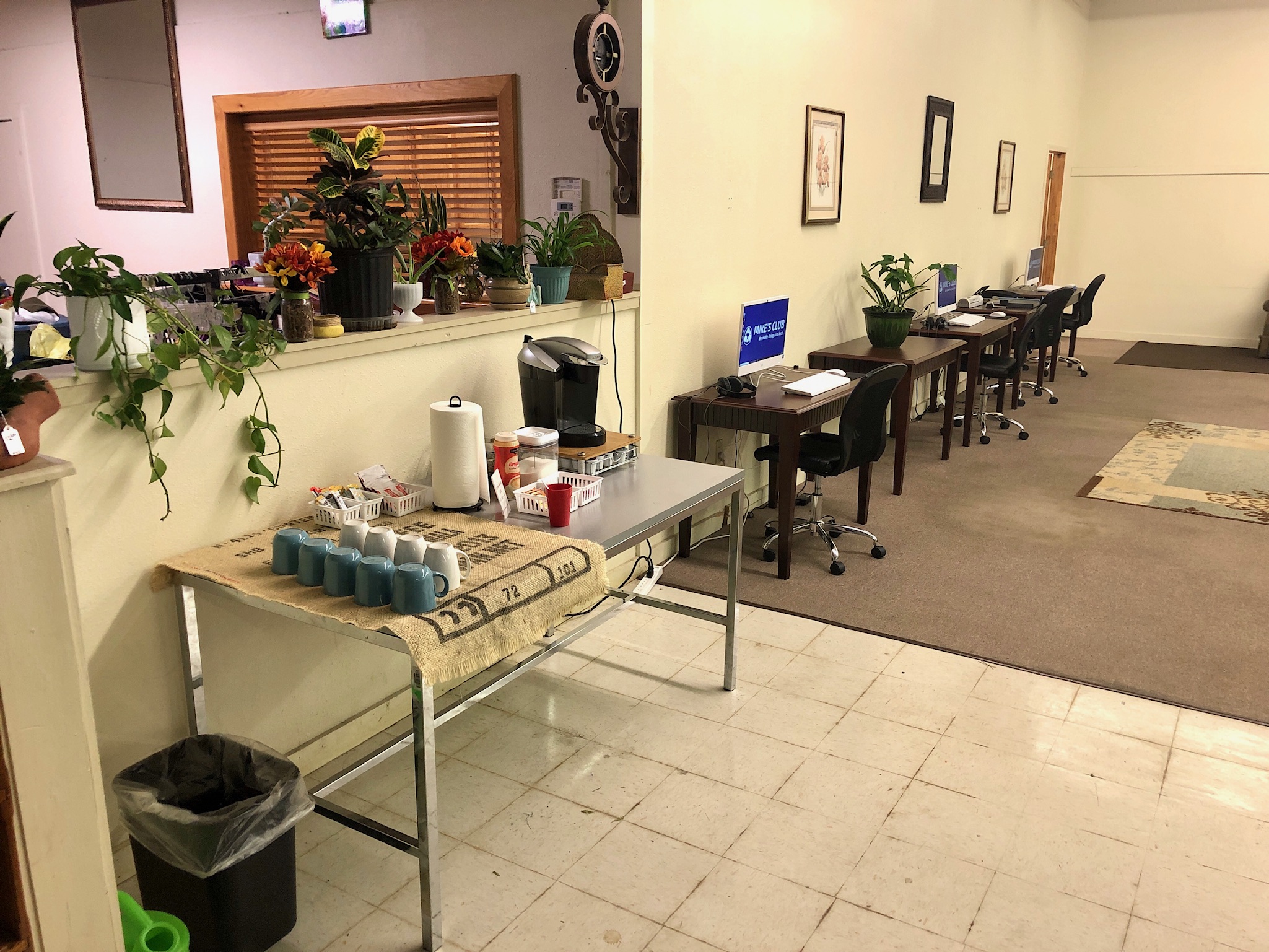
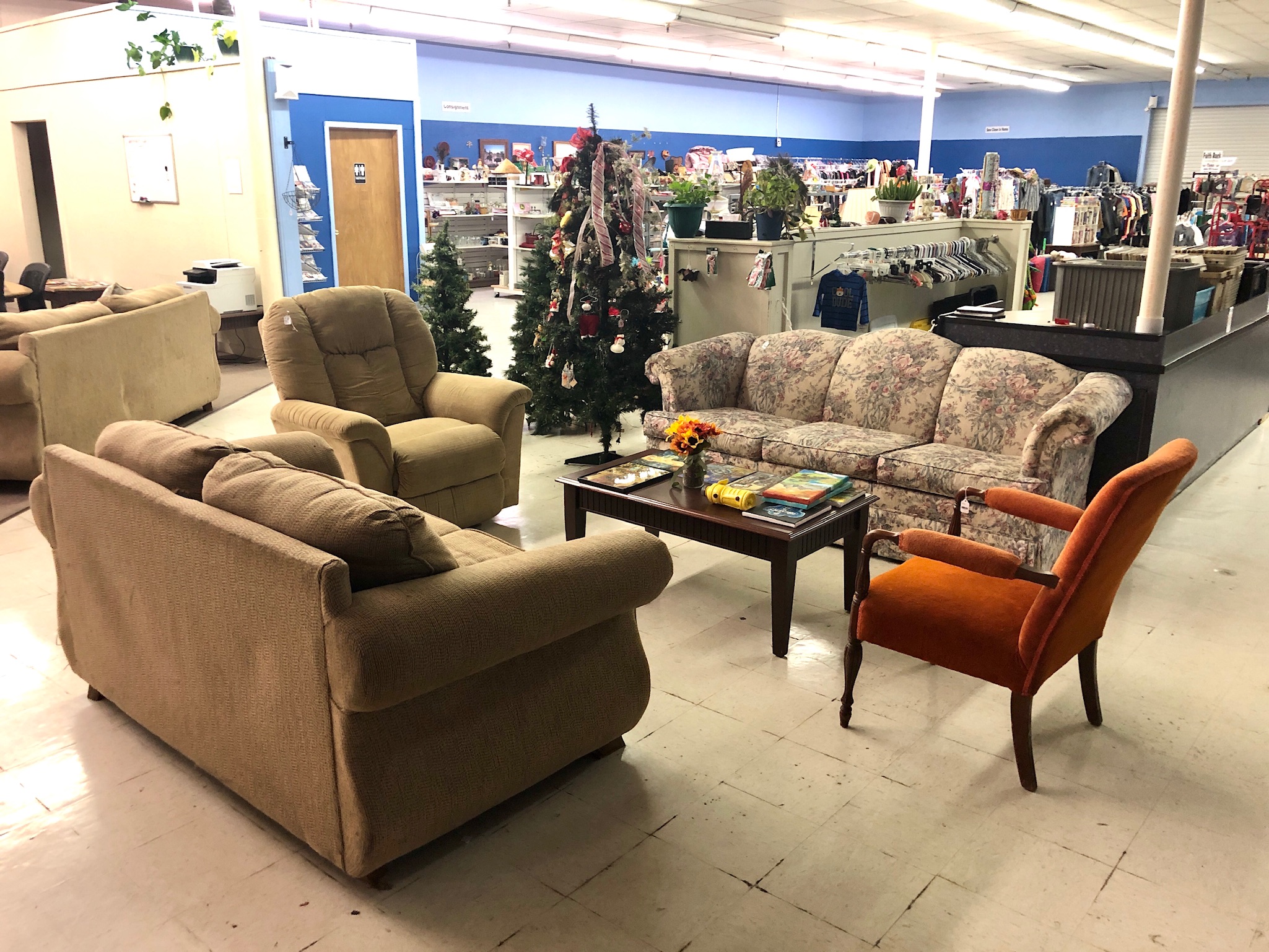
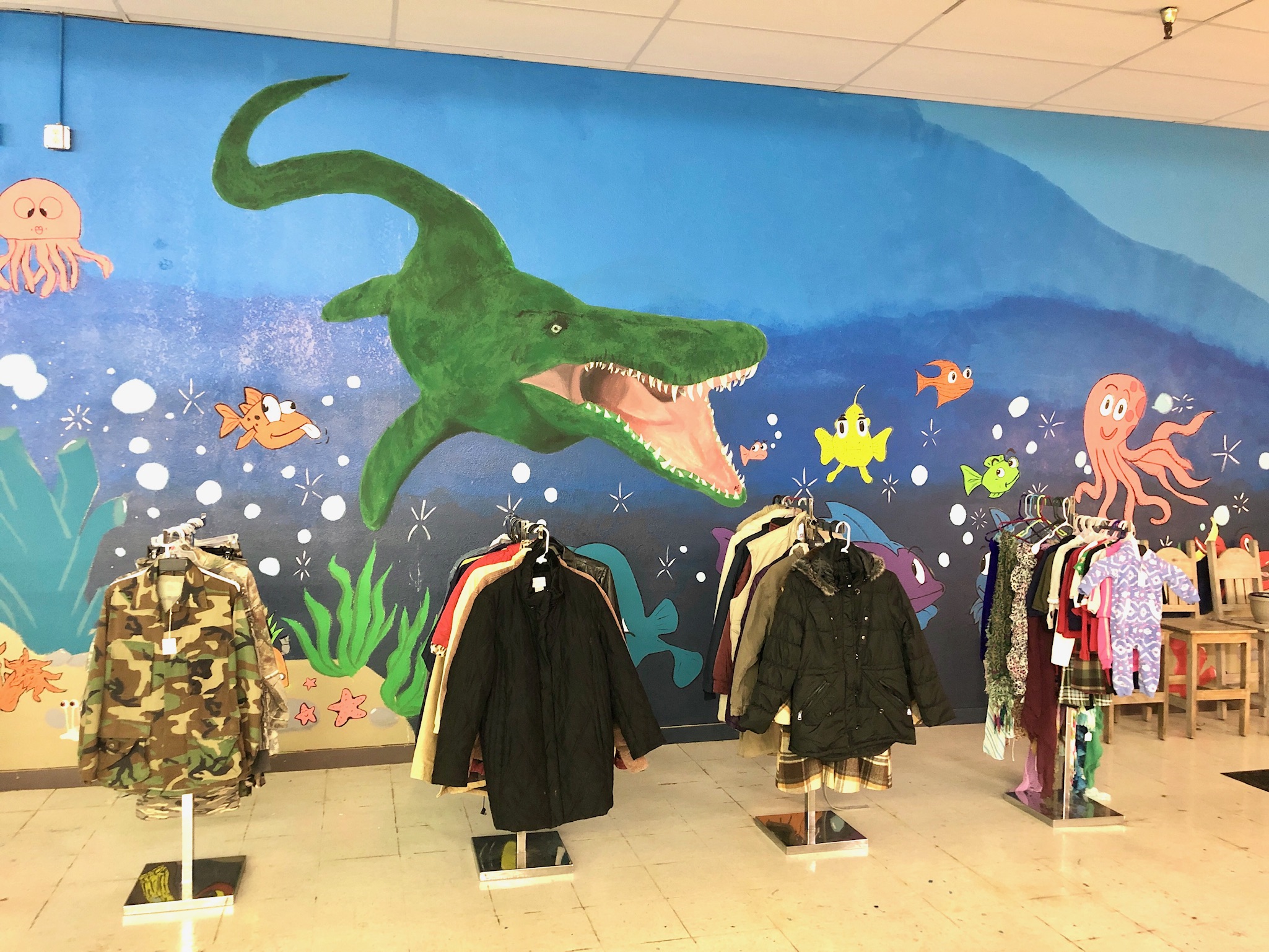
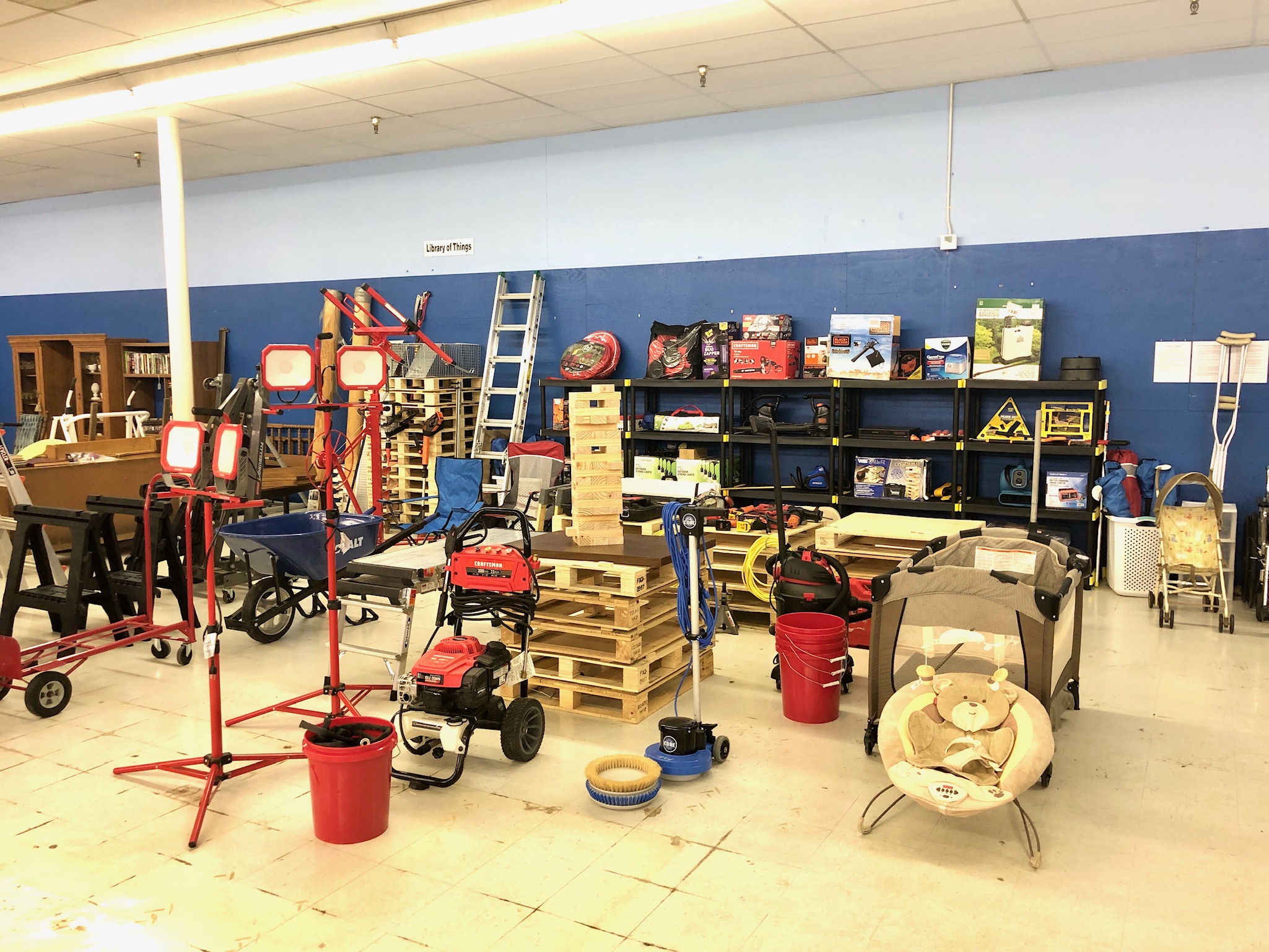
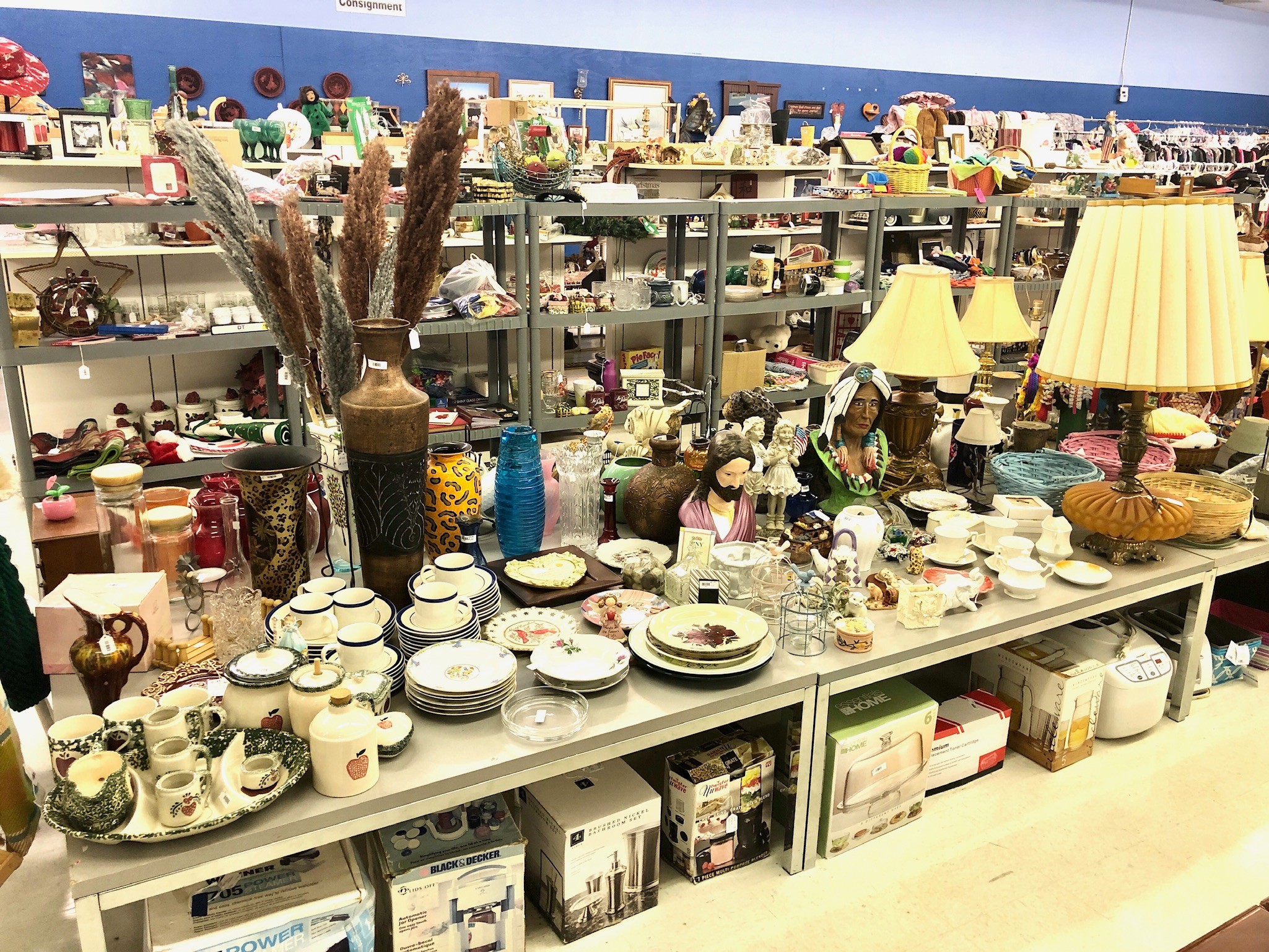
Image Credits
Images courtesy of Mike’s Club


